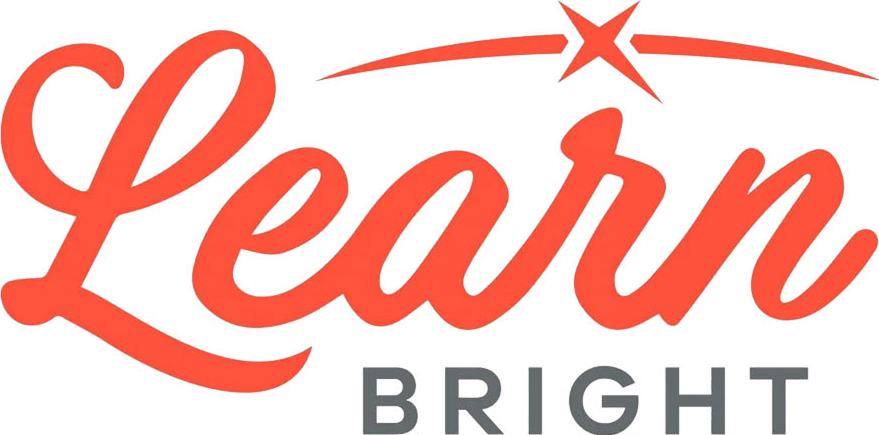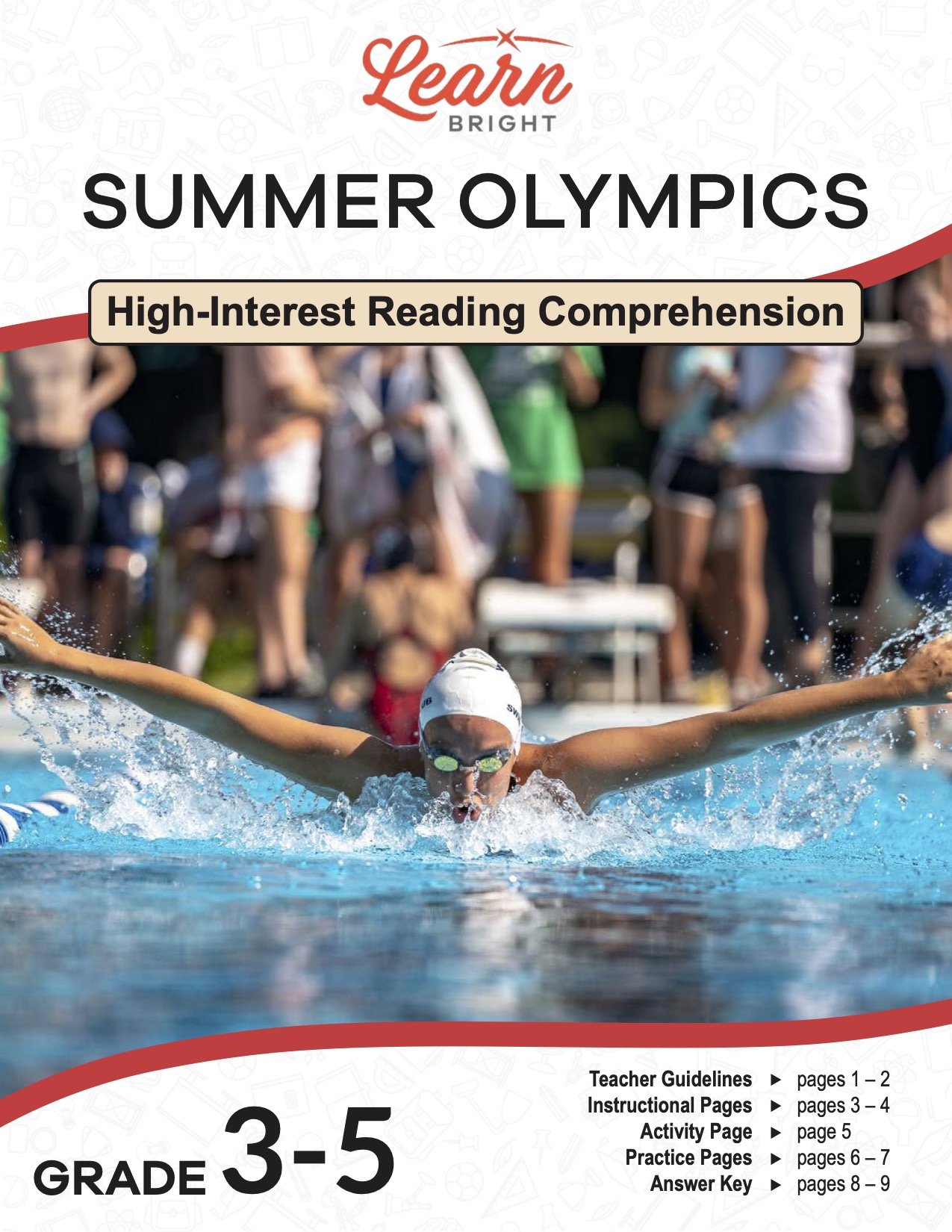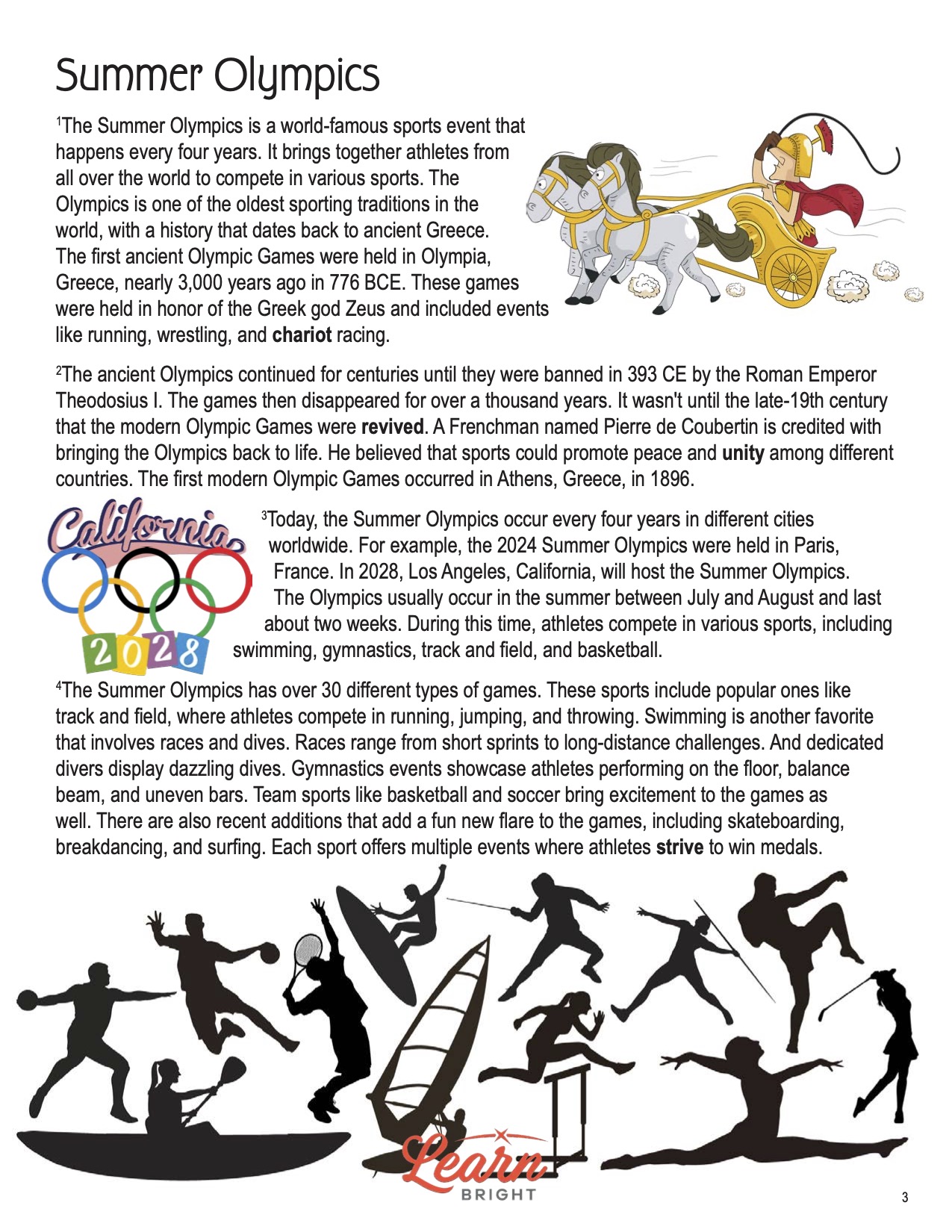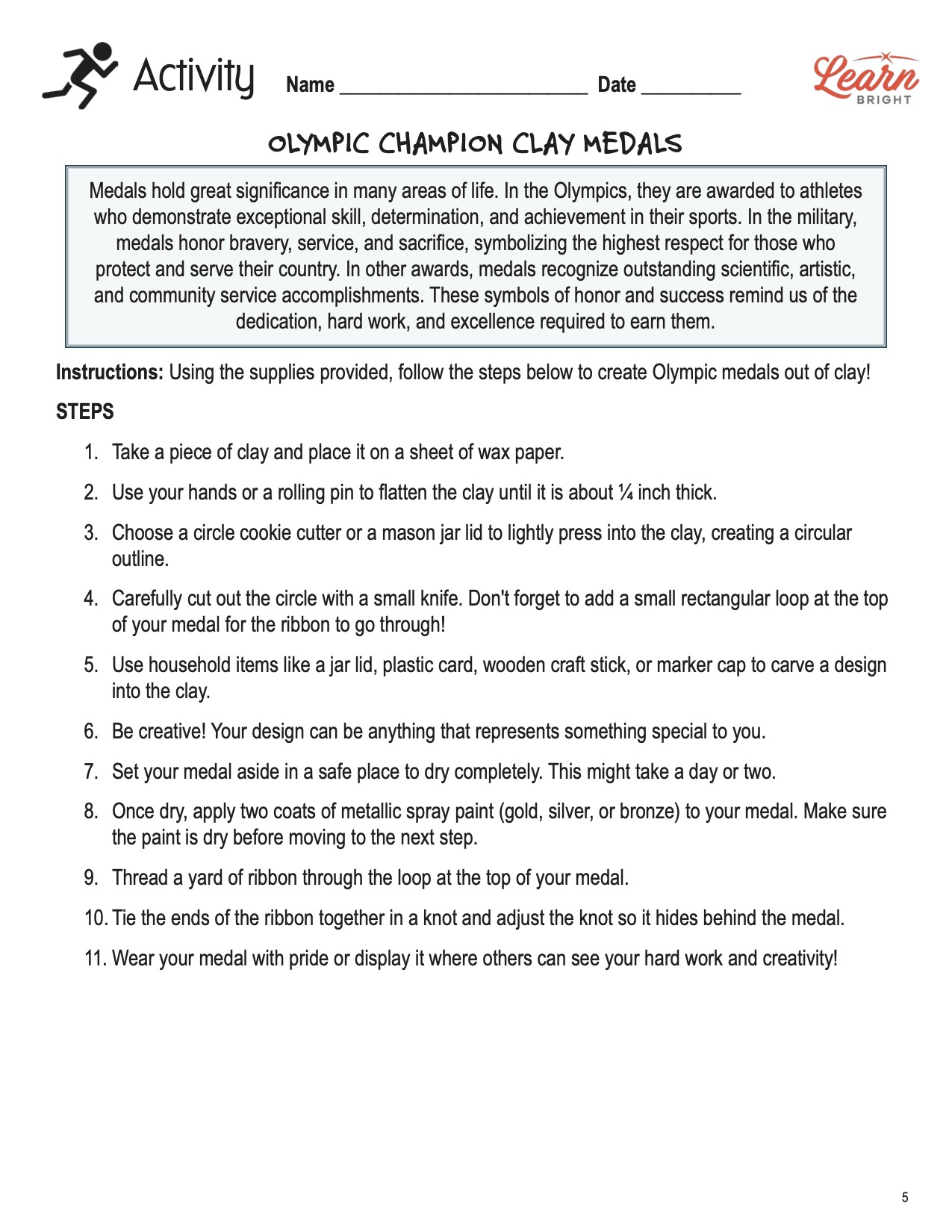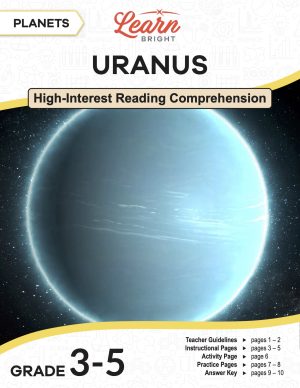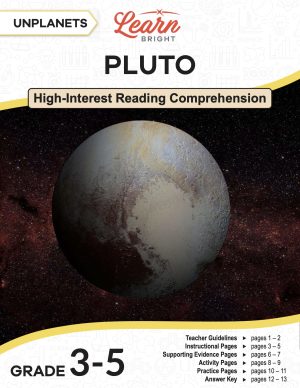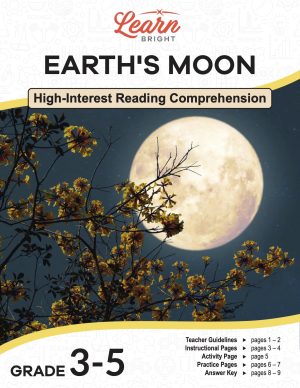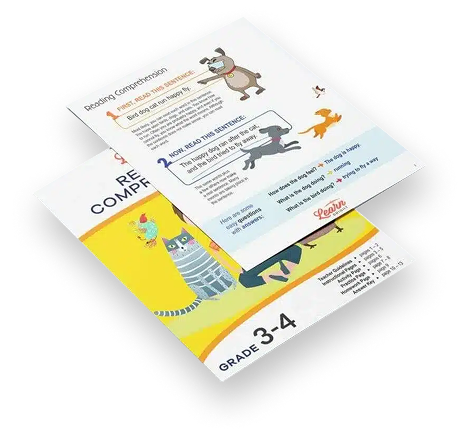Description
What our Summer Olympics lesson plan includes
Lesson Objectives and Overview: Summer Olympics is a high-interest reading comprehension lesson plan. As such, students will practice various close reading and comprehension skills. In addition, they will will learn about the Summer Olympic Games. This lesson is for students in 3rd grade, 4th grade, and 5th grade.
Classroom Procedure
Every lesson plan provides you with a classroom procedure page that outlines a step-by-step guide to follow. You do not have to follow the guide exactly. The guide helps you organize the lesson and details when to hand out worksheets. It also lists information in the yellow box that you might find useful. You will find the lesson objectives, state standards, and number of class sessions the lesson should take to complete in this area. In addition, it describes the supplies you will need as well as what and how you need to prepare beforehand. Some of the supplies you’ll need for the activity include clay, wax paper, various household items, and spray paint.
Teacher Notes
The teacher notes page provides an extra paragraph of information to help guide the lesson and remind you what to focus on. It explains that you can teach this lesson in a whole-class setting or as an independent, small-group activity. The blank lines on this page are available for you to write out thoughts and ideas you have as you prepare the lesson.
SUMMER OLYMPICS LESSON PLAN CONTENT PAGES
History of Summer Olympics
The Summer Olympics lesson plan contains two content pages. The Summer Olympics is a world-famous sports event that happens every four years. It brings together athletes from all over the world to compete in various sports. The Olympics is one of the oldest sporting traditions in the world, with a history that dates back to ancient Greece. The first ancient Olympic Games were held in Olympia, Greece, nearly 3,000 years ago in 776 BCE. These games were held in honor of the Greek god Zeus and included events like running, wrestling, and chariot racing.
The ancient Olympics continued for centuries until they were banned in 393 CE by the Roman Emperor Theodosius I. The games then disappeared for over a thousand years. It wasn’t until the late-19th century that the modern Olympic Games were revived. A Frenchman named Pierre de Coubertin is credited with bringing the Olympics back to life. He believed that sports could promote peace and unity among different countries. The first modern Olympic Games occurred in Athens, Greece, in 1896.
Today, the Summer Olympics occur every four years in different cities worldwide. For example, the 2024 Summer Olympics were held in Paris, France. In 2028, Los Angeles, California, will host the Summer Olympics. The Olympics usually occur in the summer between July and August and last about two weeks. During this time, athletes compete in various sports, including swimming, gymnastics, track and field, and basketball.
Games in the Summer Olympics
The Summer Olympics has over 30 different types of games. These sports include popular ones like track and field, where athletes compete in running, jumping, and throwing. Swimming is another favorite that involves races and dives. Races range from short sprints to long-distance challenges. And dedicated divers display dazzling dives. Gymnastics events showcase athletes performing on the floor, balance beam, and uneven bars. Team sports like basketball and soccer bring excitement to the games as well. There are also recent additions that add a fun new flare to the games, including skateboarding, breakdancing, and surfing. Each sport offers multiple events where athletes strive to win medals.
One of the most exciting parts of the Olympics is watching athletes break world records. A world record is the best performance ever recorded in a specific event. For example, Usain Bolt from Jamaica set a world record in the 100-meter sprint in 2009. He ran the race in just 9.58 seconds, making him the fastest man in the world. Another famous world record was set by American swimmer Michael Phelps, who won 23 gold medals in his Olympic career, the most by any one athlete.
In the Summer Olympics, athletes compete for gold, silver, and bronze medals. These medals are awarded to the top three finishers in each event. The athlete who finishes in first place receives the gold medal, which is the highest honor. The silver medal is awarded to the second-place finisher, and the bronze medal goes to the athlete who finishes third. Winning an Olympic medal is a significant achievement, as it represents being one of the best in the world at that sport. Athletes often train for many years to reach the skill and dedication needed to compete for these prestigious medals.
What the Games Are All About
The Olympic Games celebrate the spirit of competition, friendship, and sportsmanship. The motto—Citius, Altius, Fortius—means “Faster, Higher, Stronger.” This motto encourages athletes to push their limits and do their best. The Olympics also bring together people from different countries and cultures to promote peace and understanding.
What make the Olympics Games so special are the traditions. One of these traditions is the Olympic torch relay. The torch is lit in Olympia, Greece, and carried by runners to the Olympics host city. The flame stays lit until the end of the games. Another tradition is the opening ceremony, where athletes from all the participating countries march into the stadium, waving their national flags.
The Olympics has a recognized worldwide symbol—the five interlocking rings. These rings represent the five continents that participate in the games: Africa, Asia, America, Europe, and Oceania. The colors of the rings—blue, yellow, black, green, and red—were chosen because every national flag in the world has at least one of these colors.
In conclusion, the Summer Olympics is a remarkable event with a rich history. It continues to be an essential part of the world’s culture. It is a time when the best athletes from around the globe come together to compete, break records, and celebrate the human spirit. As the Olympics evolve, they will remain a symbol of excellence and international unity.
SUMMER OLYMPICS LESSON PLAN WORKSHEETS
The Summer Olympics lesson plan includes two worksheets: an activity worksheet and a practice worksheet. Each one will help students solidify their grasp of the material they learned throughout the lesson. You can refer to the classroom procedure guidelines to know when to hand out each worksheet.
OLYMPIC MEDALS ACTIVITY WORKSHEET
For the activity, students will get to craft their own Olympic medals using clay and other materials. The worksheet outlines the steps to follow.
REVIEW PRACTICE WORKSHEET
The practice worksheet lists 10 questions based on the content. These questions all relate to the content pages, so students will need to refer to them often for the answers. In addition, each question provides which reading tool the question corresponds to, such as text feature, vocabulary, or comprehension.
Worksheet Answer Keys
At the end of the lesson plan document is an answer key for the practice worksheet. The correct answers are all in red to make it easier for you to compare them with students’ responses. If you choose to administer the lesson pages to your students via PDF, you will need to save a new file that omits these pages. Otherwise, you can simply print out the applicable pages and keep these as reference for yourself when grading assignments.
